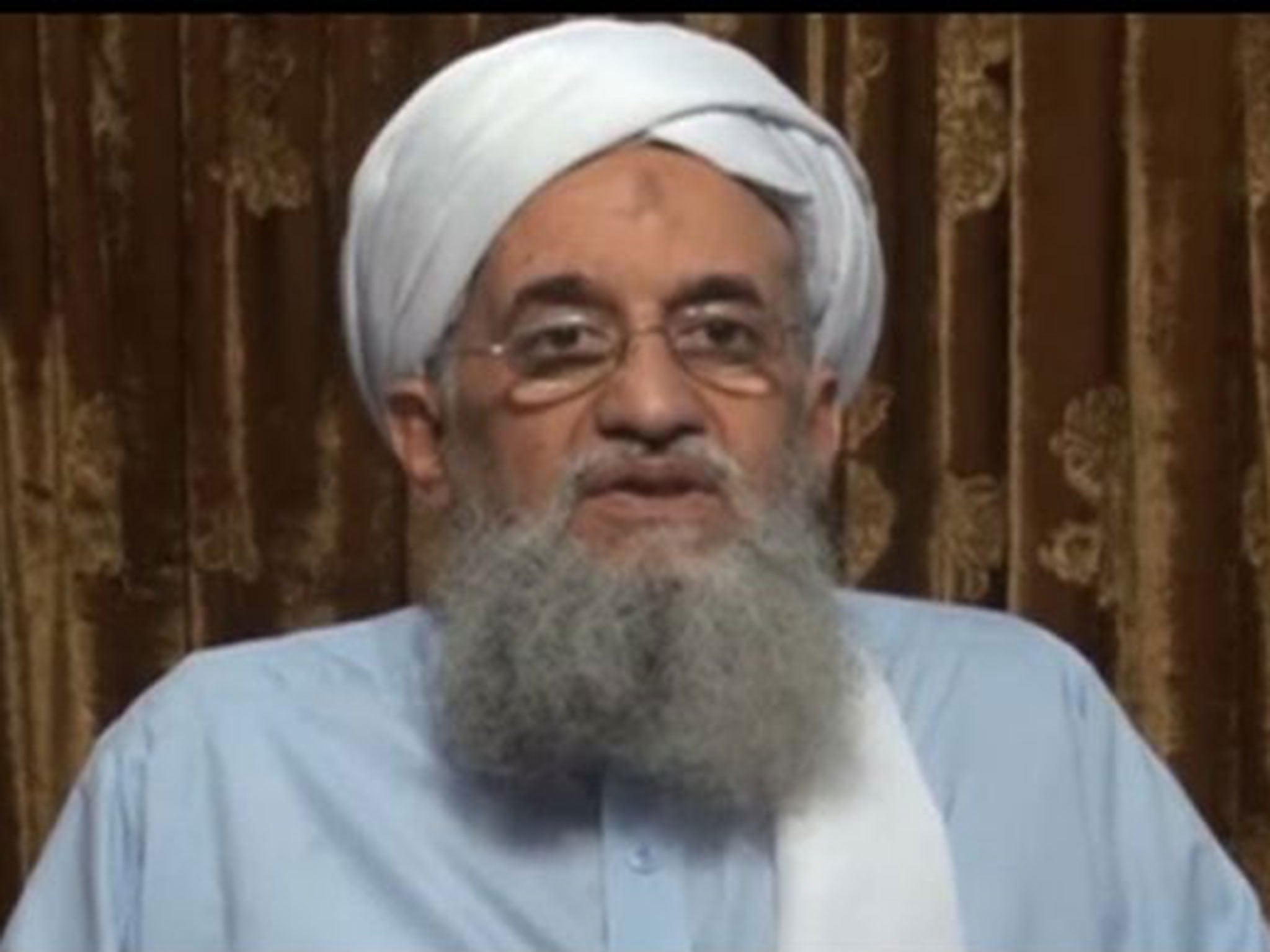Isis in Syria: US weighs threat of damaged Khorasan Group, 'progeny of al-Qaeda'

As the US and a coalition of countries mobilised against new Islamist enemies this month, the voice of an ageing adversary echoed in the distance.
Ayman al-Zawahiri, one of al-Qaeda's founders and its leader for the past three years, released a video announcing the formation of a new affiliate in India and lamenting the turmoil being caused by the rival Islamic State (Isis) in Syria.
But Zawahiri was silent on the creation of a cell in Syria dedicated to plots against the US. The Khorasan group – struck but not destroyed by US cruise missiles last week – came into public view like the contents of an al-Qaeda time capsule.
It is led by all-but-forgotten operatives who knew Osama bin Laden before the attacks of 11 September 2001. And, according to US officials, it was assembled under the instruction of an al-Qaeda leader approaching retirement age.
Zawahiri's involvement underscores how much is unfinished in the conflict with al-Qaeda, after 13 years of war.
Although al-Qaeda's leadership is depleted and the Taliban replaced with a fledgling democracy, objectives viewed as critical at the outset of the war have faded into afterthought. Clusters of al-Qaeda fighters in Afghanistan and Pakistan have outlasted the US combat mission set to end this year. The triumvirate of US-designated high-value targets after the World Trade Center attacks – Bin Laden, Zawahiri and the Taliban chief Mohammad Omar – lost its most iconic figure three years ago. But Zawahiri and Omar are still in place.
US counterterrorism officials said the Khorasan threat has not altered their view of how badly the group they refer to as AQSL – al-Qaeda Senior Leadership – has been degraded. Khorasan may be "the progeny of al-Qaeda", said the FBI director James B Comey, but its emergence reflects the extent to which affiliates have eclipsed the inner circle, whose members are now "part of that phenomenon – refugees from Afghanistan and Pakistan".
The Isis emerged from the remnants of an al-Qaeda affiliate in Iraq that was seen as all but destroyed. Three years after US forces left Iraq, the group controls large parts of that country and Syria, amassing weapons and cash, beheading Western hostages and forcing the US (and its coalition) to resume bombing.
US officials are still trying to determine the implications of Khorasan, whose name is derived from a region astride Iran and Afghanistan where al-Qaeda has barely managed to avoid extinction.
The Syria-based cell is led by Mushin al-Fadhli, said to be close enough to bin Laden to have been aware of the 11 September plot in advance. US officials said they are still trying to determine whether he was killed in an airstrike.
But the danger Khorasan poses is more dependent on a new generation, including fighters arriving in Syria with Western passports and operatives from an al-Qaeda affiliate known for its bomb-making expertise.
© The Washington Post
Join our commenting forum
Join thought-provoking conversations, follow other Independent readers and see their replies
Comments